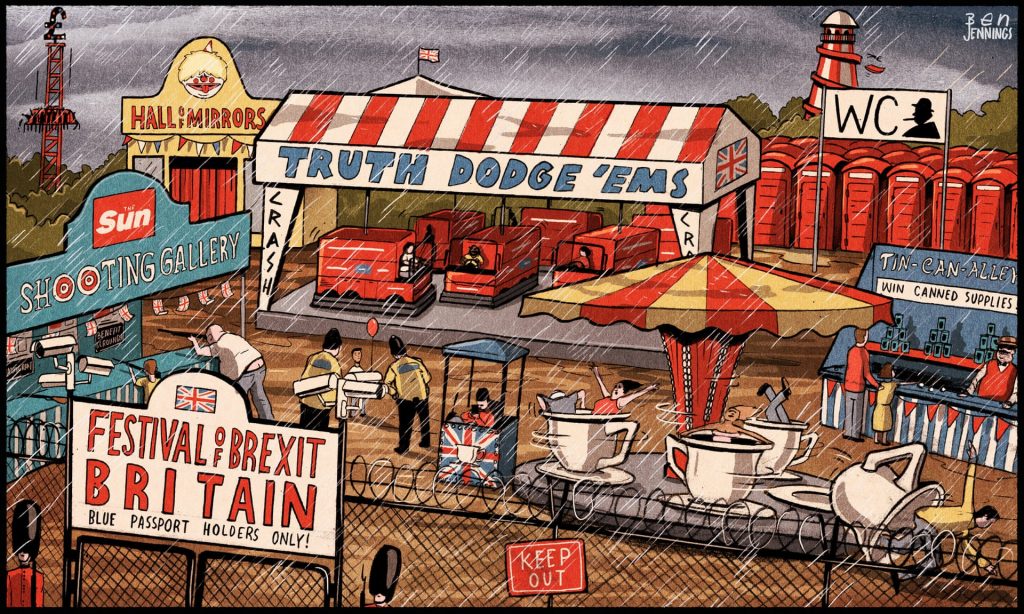Warning: Undefined array key "ssba_bar_buttons" in /usr/home/movgwifi/public_html/yesedinburghwest.info/wp-content/plugins/simple-share-buttons-adder/php/class-buttons.php on line 602
Warning: Undefined array key "ssba_bar_buttons" in /usr/home/movgwifi/public_html/yesedinburghwest.info/wp-content/plugins/simple-share-buttons-adder/php/class-buttons.php on line 602
Warning: Undefined array key "ssba_bar_buttons" in /usr/home/movgwifi/public_html/yesedinburghwest.info/wp-content/plugins/simple-share-buttons-adder/php/class-buttons.php on line 602
 It’s 2029, ten years on from Great Britain’s momentous departure from Europe, and we can look back with pride on our achievements since we took back control.
It’s 2029, ten years on from Great Britain’s momentous departure from Europe, and we can look back with pride on our achievements since we took back control.
Prosperity has returned, and share dividends have never been higher. The years of exploration, tax breaks and cost cutting in the Great British oil fields yielded staggering profits, with production at 1970’s levels and the price of oil at $150 a barrel. Companies have also reaped rewards from fracking, despite the anti-trade activists who caused the re-introduction of the Deportation to the Colonies Act and the protests of a few of our previous colonies. The halving of the £ exchange rate has been of major benefit to our Great British exports of oil, whisky, marmalade and leftover fruit. Tax avoidance is now a proud Great British specialty, without fear or favour or control of Brussels bureaucrats, although tax revenues from this activity are yet to emerge. Shipbuilding productivity has improved dramatically since we outsourced it all to South Korea. Transferring the NHS to a USA healthcare company has been a major success with Sir Richard Branson as CEO – prescriptions have been capped at £20, GP visits at £60 and annual health insurance policies at £5000 to help the poor. All roads and hospitals are now built by public subscription. The National Debt has been reduced to £10 trillion, and Austerity will be cancelled within the next 5 years.
The 2019 Great British Single Market Act created a level playing field by eliminating the Scottish legal system. Education has been standardised with the introduction of ‘A’ levels, the mandatory teaching of the glorious history of the British Empire, and the banning of Scots and Gaelic languages and history. Displays of non-English patriotism are allowed only for commercial purposes of tourism.
The 2019 Emergency Powers Act prohibited the assembly of more than 10 persons – a masterstroke, disabling trade unions, political meetings and Muslim prayer, while allowing Christian churches to operate as normal. The state religion is now Episcopalian, invoking fond memories of Oliver Cromwell. A review of 19th and 20th century legislation resulted in repeal of The Slavery Abolition Act among others.
The 2019 Rotten Boroughs Act returned a level of democracy not seen in Great Britain since 1745. The population of Scotland fell to 4 million, as people emigrated in search of food and medicine. Changes to the Electoral registration procedures reduced the number of voters to 1 million, due to the number refusing or failing the English citizenship test – particularly on cricket appreciation and the meaning of words like “punting”. The SNP was declared a terrorist organisation after 10 Yes activists invaded Holyrood Park in defiance of Historic Environment Scotland. As a result, Ruth Davidson achieved her ambition of becoming First Minister. A new Act of Union dissolved the Scottish Parliament, which had tried to subvert the precious Union by being better than the English Parliament, and all its legislation struck down. David Mundell was promoted to Mayor of Scotland. The House of Commons voted to delegate all power to the Cabinet, and the Cabinet voted to delegate all power to the Prime Minister, now known as the President. There is therefore no need for the Parliament to meet – the population will be kept informed through the usual media outlets, and will be held to account by the House of Lords, which has expanded to 5000 members to recognise the contribution of Baron G Brown, Earl Richard Leonard, Sir Ross Thomson and many others. There is no longer a need to have elections or referenda in future, as they proved so divisive in the past. Thankfully, the Electoral Commission is no longer necessary.
The 2019 Crown Estates Bill surprised everybody by privatising the Royal Family. The Queen decided to move to Bermuda for health reasons, keeping a smallish portion of her wealth intact.
Admittedly, there have been some small downsides. The oil spill in the West Shetlands was unfortunate, but an inquiry found that BP was not at fault. The deaths of Paul Kavanagh, Peter Bell, Peter Curran and Lesley Riddoch were found not to be suspicious by an inquiry after a car they were all travelling in ran off the road and they committed joint suicide by shooting each other simultaneously with 2 bullets each to the head before wiping the gun(!) clean of fingerprints. The Scottish Peasant Revolt of 2028 resulted in major loss of life, as did the Trident nuclear convoy accident in Drumchapel, caused by leaves on the road. The 2020 re-occupation of English land in Normandy (with the tactical nuclear strike on Rouen) did not go well. Scots are returning to their roots with holidays in Blackpool and Portobello. Jackie Bird is still the face of BBC Scotland. The National Trust decided to close, and gift all its Scottish land and properties to National Trust England. Pension age is back where it should be – lower than life expectancy.
All in all, it’s gone much better than expected.
Yes Edinburgh West has a website, Facebook, Twitter, National Yes Registry and a Library of topics on Scottish Politics, including Independence.



